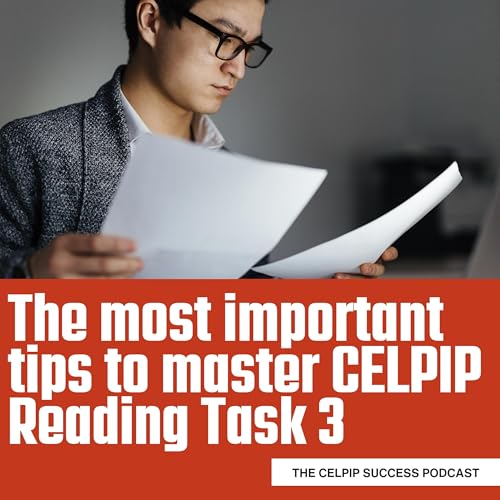Feeling like your motivation just up and vanished? Trust me, I get it. I'm struggling with that too!
Today, I’m diving into how to keep your motivational fires burning when all you want to do is hide under a blanket and binge-watch your favourite shows. I'm going to be sharing some insightful strategies to tackle those low-energy days, with a focus on the fact that motivation isn’t a magical feeling that just hits you out of nowhere. Instead, it’s about taking action—yep, just getting started is often the key.
I’ll also touch on the importance of creating simple routines that pull you into practice, and how breaking down your goals can help you push through the inevitable dips we all face. So, if you've been struggling to stay on track with your English practice or CELPIP prep, listen in to today's episode—I've got some practical tips that you can put into action right away!
The struggle of motivation is something we can all relate to. Whether you're preparing for the CELPIP exam or just trying to maintain your English skills, there are moments when picking up that textbook or logging into a practice app feels like an impossible task. I've been there too, and it's a universal challenge. Today, I want to dive deep into understanding where that lack of motivation comes from and, more importantly, how we can actively combat it.
A key insight I've discovered is from James Clear, who suggests that motivation often follows action rather than precedes it. This means that instead of waiting for that spark of enthusiasm to hit, we should just get started. Even the smallest action can spark that motivation we thought was lost. Think of it as a snowball effect; once we begin, it’s much easier to keep the momentum going.
Another practical takeaway is the importance of establishing a simple pre-game routine. This could be as easy as setting out your study materials or even putting on your headphones to listen to English podcasts. The key is to make this routine effortless so that you can begin your practice without needing to muster up motivation each time.
We'll also look into the concept of the dip, that author Seth Godin writes about in a book that goes by the same name, The Dip!
The dip refers to those inevitable periods when progress feels stagnant. Understanding that these dips are normal and part of the learning process can help us push through and continue working towards our language goals.
In wrapping up, I want to encourage you to embrace the idea that motivation is not a magical feeling we wait for. Instead, it’s something we create through action. So, let’s not wait; let's set those simple routines and begin our practice today! If you have a pre-game routine or plan in mind, I’d love to hear about it. Share your thoughts with me!
Takeaways:
- Motivation isn't some magical spark that appears; it's actually a byproduct of taking action.
- To overcome the slump or lack of motivation, just getting started can create the momentum needed to keep going.
- Creating a simple pre-practice routine can help trigger your study sessions and make them easier to start.
- Don't focus on the end goal alone; break it down into smaller, manageable tasks to keep yourself engaged.
- Physical movement is crucial; get up, move around, and your mental energy will follow suit during study sessions.
- Monitor your progress regularly to stay motivated, especially after achieving milestones in your learning journey.
Links mentioned in this episode:
- By James Clear: How To Get Motivated When You Don't Feel Like it. , | Motivation: The scientific guide on how to get and stay motivated.
- Seth Godin:...
 31 minutos
31 minutos 12 minutos
12 minutos 25 minutos
25 minutos 14 minutos
14 minutos 32 minutos
32 minutos 21 minutos
21 minutos Nov 11 202541 minutos
Nov 11 202541 minutos 27 minutos
27 minutos
